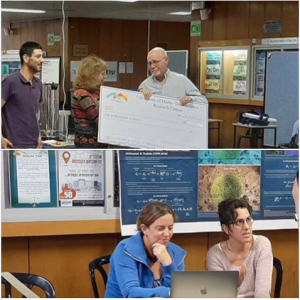Computational social science
Speaker: Prof. Dirk Helbing (ETH Zurich)
Title: Simulating the World
Abstract: Given the Internet of Things, Big Data, and AI, can we now simulate the world? If yes, how should we go about it, and what could possibly go wrong? These are questions that can be of critical importance for the world, and actually for the future of all of us.
Speaker: Dr. Michael Freedman (University of Haifa)
Title: Using Text as Data to Examine Religious Leader Rhetoric and Radicalization
Abstract: Why do some religious leaders adopt radical ideologies, while other do not? The ability to analyze very large amounts of texts with computational text analysis allows researchers to make progress on this important question. In this talk, I outline the two main statistical tools researchers use to analyze large amounts of text: (1) unsupervised topics models and (2) machine learning tools. I illustrate these tools using three related applications: the nationalist rhetoric of Israeli religious leaders during conflict with the Palestinians, the adoption of radical ideologies by militant groups in Afghanistan, and the turn to Jihad by some clerics
Speaker: Dr. Erez Shmueli (Tel-Aviv University, MIT Media Lab)
Title: Understanding, Predicting and Shaping Human Behaviour
Abstract: Big Data holds many promises, not only for the individual but also for the public good. At the individual level, Big Data can help users to become more connected, productive, and entertained. At the society level, Big Data creates tremendous opportunities in areas ranging from marketing to public health and urban planning. My work in this area has focused on utilizing data to build computational models of human behavior. Having such models would then allow us to better understand and predict future behaviors, and ultimately intervene when needed. In this talk, I will focus on a concrete example from a recently published paper: “Money Drives: Can Monetary Incentives based on Real-Time Monitoring Improve Driving Behavior?”. This paper examines the effectiveness of monetary incentives based on real-time monitoring as means to improve driving behavior of professional drivers.


